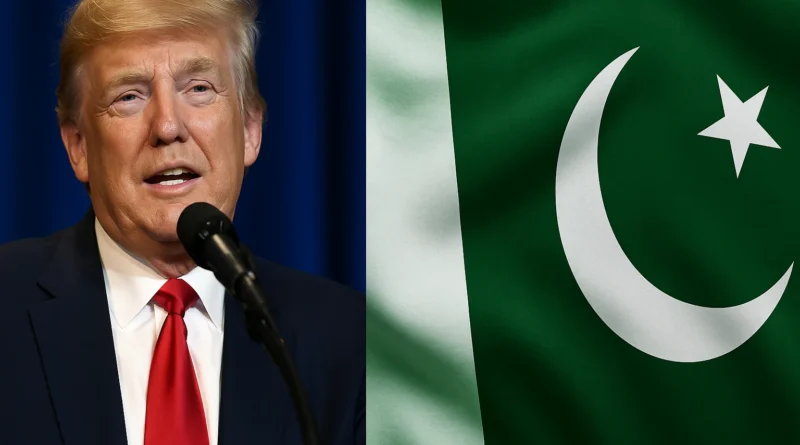Pakistan Nominates Donald Trump for Nobel Peace Prize Over India-Pakistan Ceasefire, India Disagrees
Islamabad / Washington D.C. – The government of Pakistan has officially announced its decision to formally recommend U.S. President Donald Trump for the 2026 Nobel Peace Prize. The nomination, made public on Saturday, June 21, 2025, through an official statement, cites Trump’s “decisive diplomatic intervention and pivotal leadership” during the recent India-Pakistan conflict as the primary reason for this prestigious recommendation.
This move by Islamabad comes just days after President Trump hosted Pakistan’s Chief of Army Staff, Field Marshal Syed Asim Munir, for an unprecedented luncheon meeting at the White House, during which the India-Pakistan de-escalation was a key topic.
The Conflict and Disputed Mediation
The conflict in question refers to a tense period of heightened hostilities between India and Pakistan in April and May 2025. Tensions escalated following the April 22 Pahalgam terror attack in Jammu and Kashmir. India responded with precision strikes on terror infrastructure in Pakistan and Pakistan-occupied Kashmir on May 7, an operation reportedly named “Operation Sindoor.” This led to a four-day military confrontation, including attempted retaliatory strikes by Pakistan on Indian military bases. Both sides eventually reached an understanding on May 10 to halt further military actions.
Pakistan has consistently credited President Trump’s “robust diplomatic engagement” and “strategic foresight” for brokering this ceasefire, asserting that his intervention averted a potentially catastrophic conflict between the two nuclear-armed neighbors. The official statement from Pakistan described Trump as a “genuine peacemaker” whose “critical engagement” de-escalated the situation through dialogue. Pakistan also highlighted Trump’s past offers to mediate the Kashmir issue as evidence of his commitment to regional peace.
India’s Firm Rejection of Mediation Claims
However, India has categorically denied any third-party mediation in the ceasefire. Prime Minister Narendra Modi, in a telephonic conversation with President Trump earlier this week, reportedly “clearly conveyed” that the cessation of hostilities was achieved solely through direct military-to-military talks between India and Pakistan. New Delhi maintains that no other nation was involved in brokering the truce, and that Pakistan initiated the request for de-escalation. Indian officials have also refuted Trump’s assertions that trade incentives played a role in the ceasefire.
Trump’s Own Nobel Aspirations
The nomination from Pakistan arrives amidst President Trump’s frequent public statements about his own qualifications for the Nobel Peace Prize. On Friday, June 20, Trump took to his social media platform, Truth Social, to lament that he won’t receive the Nobel Prize “no matter what I do.” He listed several diplomatic achievements he claims credit for, including “stopping the War between India and Pakistan,” brokering a recent peace treaty between the Democratic Republic of Congo and Rwanda, and the Abraham Accords in the Middle East. Trump has often criticized the Nobel committee for what he perceives as a bias, having previously claimed he “should have gotten it four or five times.”
The decision by Pakistan to formally nominate Donald Trump for the Nobel Peace Prize is likely to further deepen diplomatic complexities and competing narratives surrounding the recent India-Pakistan de-escalation. The Nobel Peace Prize committee will consider nominations submitted by qualified nominators for the 2026 award, with the winner typically announced in October of the award year.

